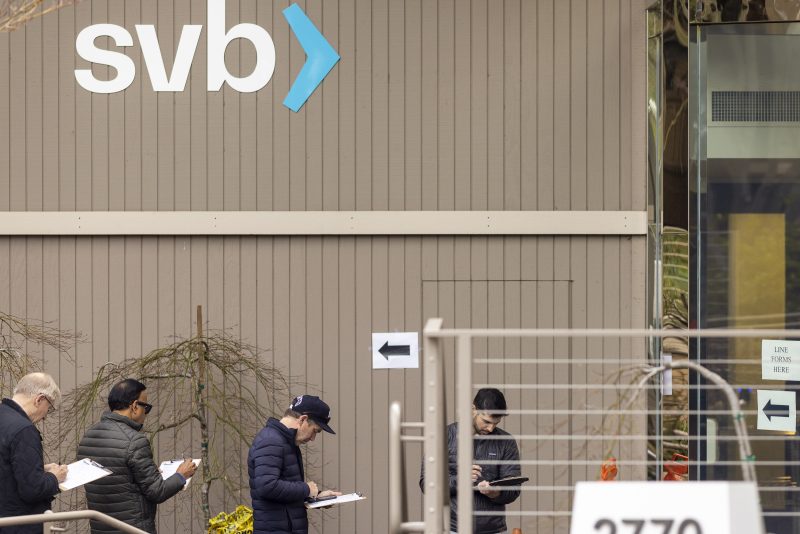The collapses of Silicon Valley Bank and Signature Bank over the weekend have renewed interest in a 2018 bill that rolled back several banking regulations that were put in place after the 2008 financial crisis.
The bill, led by Sen. Mike Crapo (R-Idaho), scaled down requirements imposed under the 2010 Dodd-Frank law and reclassified the size of banks that would have to undergo increased regulatory scrutiny, raising that threshold for some from $50 billion in assets to $250 billion in assets. Since Silicon Valley Bank had roughly $209 billion in assets, it was exempt from those more stringent regulations.
But lawmakers who voted for the regulatory easing of capital requirements and other measures in 2018 are standing by their position even as it threatens to resurface a major divide between liberal and more moderate Democrats. And with a Republican-led House and disagreement among Democrats over the law’s impact on SVB’s collapse, there is little desire to revisit the rule to reinstate more stringent provisions for small and midsize banks.
Republicans, for their part, are dismissing any need for more regulation. They championed the measure then and say it’s important now for small and midsize banks to more easily access capital.
“Before there’s a rush for more regulations, we should make sure that they are actually implementing the ones that are there,” Sen. Kevin Cramer (R-N.D.), who supported the bill when he was in the House, told reporters Tuesday.
Crapo said calls to increase regulations on U.S. banks is a “distraction that will not solve for failed basic supervision.”
“The bipartisan S. 2155 right-sized regulation for financial institutions and preserved protections to ensure the safety and soundness of our financial system,” he said in a statement Monday. “This event was a basic supervisory oversight failure of poor financial risk management strategies.”
Democrats who voted for it aren’t backing away, either.
“You’re going to find out that the (2018 deregulation) bill had nothing to do with this bank’s failure,” Sen. Jon Tester (D-Mont.), who attended a fundraiser Monday night in Silicon Valley for his reelection campaign and also supported the 2018 bill, told The Washington Post. “The tools were there to make sure that this bank didn’t screw up. Obviously the board of directors and their CEOs were asleep at the wheel.”
Democrats who voted in support of the 2018 bill argue they did so because small businesses and rural communities in their states rely on smaller and regional banks for financing.
“Virginia community banks were very supportive of that bill,” Sen. Tim Kaine (D-Va.) told reporters Tuesday. “Some have asserted, ‘Oh, well, it was the 2018 bill that five years later led to this.’ I am a little bit wary of that. I think what you got to do is you got to dig into the circumstances of the SVB and Signature (failures).”
Sen. Mark R. Warner (D-Va.) said during an ABC News interview earlier this week that he was “proud” to be one of the key authors of that bill.
“It strengthened the banking system,” he said. “I do think these midsized banks needed some regulatory relief.”
Around the 2018 bill’s passage, there was intense lobbying by both politicians and banks seeking regulatory relief.
The vote led to a bitter and personal fight among Democrats, pitting liberals, including those running in the 2020 Democratic presidential primary, against red- and swing-state Democrats with challenging reelection bids.
The legislation ended up passing both chambers with bipartisan support and was signed into law by President Donald Trump. More than a dozen Democratic senators voted for the bill with all Republicans, and more than 30 Democrats signed on in the House.
The ghost of that intraparty fight is resurfacing now with more liberal lawmakers pointing fingers at those who voted for the bill.
Rep. Ruben Gallego (D-Ariz.), who is running for Sen. Kyrsten Sinema’s (I-Ariz.) Senate seat, criticized the senator earlier this week over her support for the law when she was a House member.
“What is the difference between me and Kyrsten Sinema?” he wrote Monday on Twitter. “When the bank lobby asked me to weaken banking regulations, I said no. When they asked Sinema, she asked how much — and then voted yes. This is the consequence of choosing to side with Wall Street Banks.”
Sen. Elizabeth Warren (D-Mass.), who lobbied aggressively against the 2018 changes, said the failures of Silicon Valley Bank and Signature Bank are the direct result of the deregulation bill.
“The banks loaded up on risks. They paid the executives lots more money and salaries and bonuses. And everything went great. Profits went up right up until they blew the banks apart,” Warren said in a brief interview with The Post.
Warren and Rep. Katie Porter (D-Calif.), who also is running for a Senate seat, introduced legislation Tuesday to restore regulations that were undone by the 2018 bill.
Senate Judiciary Committee Chairman Richard J. Durbin (D-Ill.) told reporters he is going to “seriously look” at Warren and Porter’s bill. But added that he doesn’t know whether that’s going to go anywhere.
Liz Goodwin contributed to this report.








